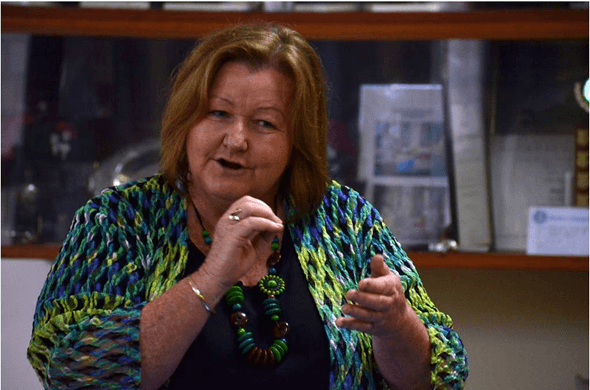Advanced Melanoma: Australia’s Deadly Awareness Roundtable explores new treatments for skin cancer
Source: Macqurie Port News, April 2015
THE availability of new, innovative and specialist cancer drugs was a major theme of Advanced Melanoma: Australia’s Deadly Awareness Roundtable held in Wauchope on Monday to highlight the human and economic costs of “Australia’s national disease".

Source: PortNews.com
Co-hosted by Member for Lyne Dr David Gillespie and Melanoma Patients Australia, the event was part of a nationwide call to arms to fight the deadly skin cancer.
Dr Gillespie, who serves on a parliamentary health committee, told the 20 or so community members present about his personal and professional experience with melanoma and outlined the rapid advances that have taken place in the last few years with melanoma treatments.
Immuno-therapy drugs are the latest promising advance in treatment he said, with fewer side effects that allow the person being treated to continue working, causing greatly reduced disruptions to family lives and workplaces.
Kempsey’s Maura Luxford told the gathering of the tragic loss of her 19-year-old daughter, Hannah, to melanoma in 2008 and the change that made to her life, following her daughter’s wish to alert young people to the dangers of the disease.
Since then Ms Luxford has trekked and travelled by pushbike and on horseback to many parts of Australia, including to Western Australia, to raise awareness of the dangers of melanoma.
During her travels she calls into schools to warn students about the need to protect their skin.
Central to her message is her warning that during the first 18 years of life the effects of the sun are imprinted on the skin and its impact is irreversible – “you can’t undo the damage", she says.
She has worked since 2009 to get the State and Federal governments to take the lead in promoting sun protection to young people.
Back then, she says, the demographics of melanoma awareness were skewed towards older people and while she is pleased in the progress that has been made she believes there is still a lot of work needed in awareness raising and research.
She developed her own program, called Mela-What?, in collaboration with the University of New England, which she believes is a useful tool in educating and appealing to the curiosity of children.
During her travels Ms Luxford has visited between 100 and 150 remote and rural schools, she says, and spoken to some 22,000 young people. In collaboration with Professor Grant McArthur she has also set up the Hannah Rose Melanoma Research Fund and has raised more than $122,000 for research.
Internationally Australia is known as “the melanoma capital of the world", she says, and while still working for North Coast TAFE to support her family, spends much of her time in community advocacy to change that unfortunate status.
